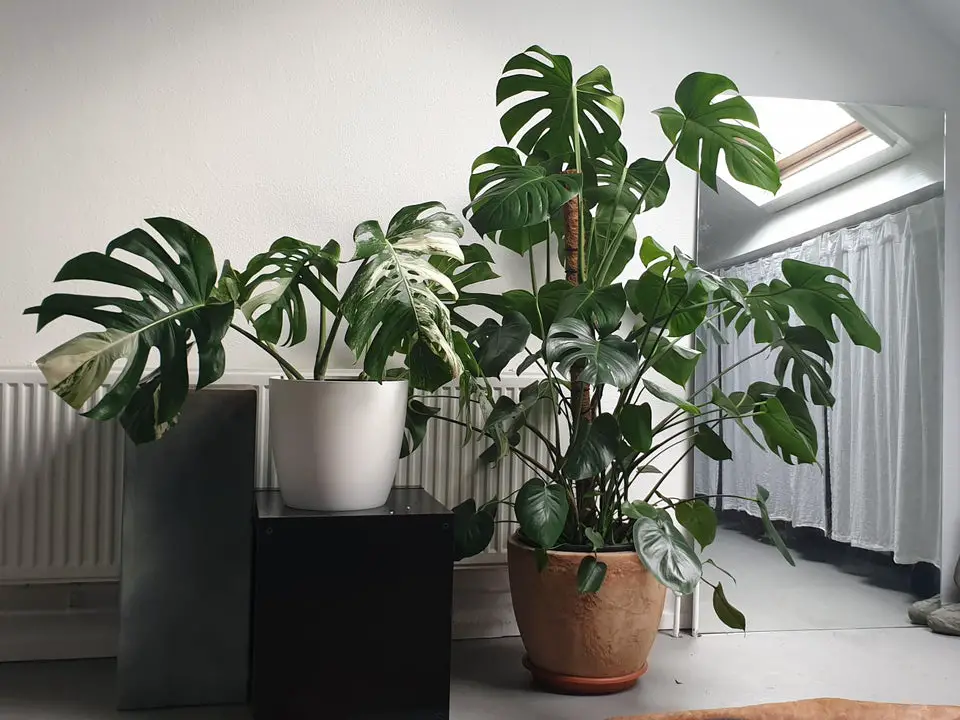Monstera plants, known for their intriguing foliage and air-purifying properties, have gained immense popularity among plant enthusiasts. Their large, uniquely perforated leaves give them a striking appearance, earning them monikers like “Swiss cheese plant” or “delicious monster.” Monstera plants are not only visually captivating but also relatively low-maintenance, making them an excellent choice for both beginners and experienced plant owners. With the right care and attention, your Monstera can thrive, gracing your living space with its lush greenery and adding a touch of tropical charm to your home.
Is there a foul odor emanating from your Monstera plant? Don’t fret; you’re not alone. Many Monstera enthusiasts have encountered the issue of a malodorous Monstera. In this article, we’ll delve into the common causes behind why your Monstera plant smells bad and explore practical solutions to revive its vibrancy.
Monstera Plant Smells Bad
A Monstera plant should have a pleasant, earthy scent, but when it starts emitting a foul odor, it’s essential to determine the root cause. The odor can range from a musty, moldy smell to something akin to rotten eggs. Understanding the reasons behind the unpleasant odor is the first step toward rectifying the issue.

Monstera Root Rot
One of the primary culprits for a bad-smelling Monstera plant is root rot. This fungal disease can thrive in overly damp soil, leading to the decomposition of the plant’s roots. As a result, the plant struggles to take up water and nutrients, which can ultimately lead to the foul smell.
Monstera New Leaves Turning Brown
If you’ve noticed that your Monstera’s new leaves are turning brown, this could be a sign of improper care. Browning leaves can release an unpleasant odor and signal issues such as overwatering, underwatering, or incorrect humidity levels.
Can a bad-smelling Monstera plant be saved?
Yes, a Monstera plant emitting a foul odor can often be saved. Identifying the cause of the odor, whether it’s root rot or another issue, is crucial. Once the cause is determined, you can take steps to remedy the situation.
Is repotting my Monstera the solution to the bad smell?
Repotting your Monstera can help if the bad smell is caused by root rot or overly compacted soil. Transferring your plant to fresh, well-draining soil can promote healthier growth and eliminate the odor.

Monstera Problems and Their Impact
Aside from root rot and browning leaves, there can be various other problems that contribute to the unpleasant odor. These issues could include pests, insufficient light, or even inappropriate pot size. Addressing these problems holistically is crucial for the overall well-being of your Monstera.
What are the signs of a healthy Monstera plant?
Understanding the signs of a healthy Monstera can help prevent issues that lead to bad smells. Healthy Monstera plants have vibrant, glossy leaves, sturdy stems, and no visible signs of pests or diseases.
How can I prevent future odor issues with my Monstera?
Preventing future odor issues involves maintaining the right care regimen for your Monstera. This includes proper watering, suitable lighting, and regular inspections for pests or diseases.
By addressing the causes of the bad smell and taking the necessary steps to rectify them, you can restore your Monstera plant to its former glory and enjoy a lush, fresh-smelling addition to your indoor garden. Remember that attentive care is the key to a thriving and fragrant Monstera.

